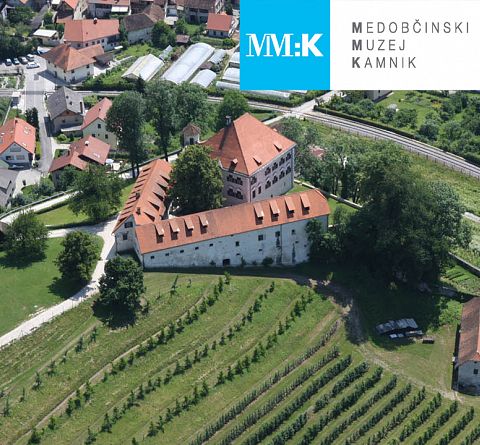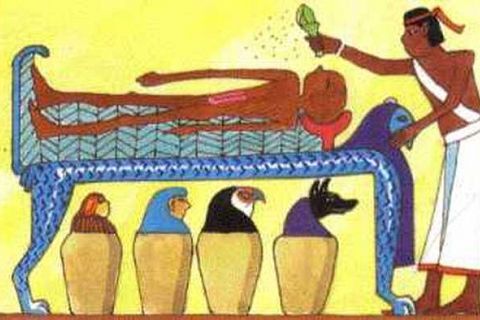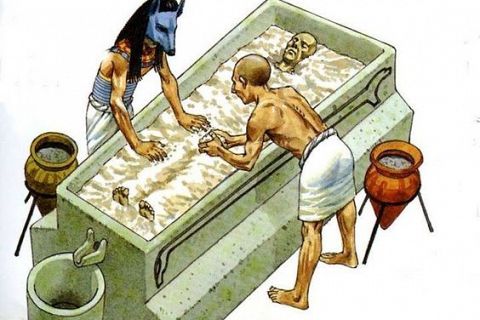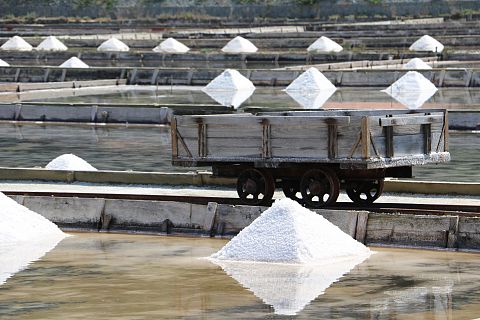Salt - white gold
We know sea, rock and evaporated salt (which is obtained from underground salt chambers, which they flooded with fresh water. When the water evaporates, table salt remains in the chambers).
Salt has been an important player in world history since prehistoric times, it has been woven into countless civilizations. The Egyptians used it in religious offerings, it was part of a valuable trade between the Phoenicians and the rest of the Mediterranean. The Egyptians covered the dead before mummification with dry salt, so cald natron to dry out the body. In Chine around 2700 BC, a debate on pharmacology arises, in which the greater part is devoted to more than 40 kinds of salt, including descriptions of the methods of extraction.
Salt was economically crucial. The term “not worth its salt” comes from the practice of the salt slave trade in ancient Greece. The special meals of salt given to the early Roman soldiers were known as “salarium argentum,” the forerunner of the English word “salary.” From Latin “sal” for example come different derivatives such as “sauce” and “sausage”. The word “salad” also originated from “salt” and began when the early Romans salted their leafy vegetables.
Salt has played a key role in many cultures, in their religious rites that symbolize purity. In the Bible it is mentioned more than 30 times.
Salt has been of great importance in history. To have salt meant to have wealth and power. People have been using it for thousands of years. It is best known for its use in cooking, as a food additive and preservative. Because of canning with salt, it was possible to transport food over long distances. They also considered it a currency. Many towns or provinces are named after salt mines: like Salzburg, Solin, Nothwich and Droitwich (-wich means source of salt), etc.
The Roman Republic built roads that made it easier to transport salt to Rome. For example the Via Salaria (originally the Sabine route) led from Rome to the Adriatic Sea. The Adriatic Sea is saltier, so its salt is more prized.
Salt – white gold, a vital addition to dishes and much more than just a spice. Today it is used as a stain and odor remover, paint hardener, it prolongs the shelf life of foods, preserves them, melts ice, nourishes metal, its gargling relieves sore throats, disinfects, degreases… and there is no doubt that similar properties have been discovered in prehistoric times.
Sources:
Harding, A., Salt in prehistoric Europe, 2013; https://en.wikipedia.org/wiki/History_of_salt; : https://old.slovenskenovice.si/lifestyle/bivanje/sol-kot-zacimba-konzervans-cistilo, https://seasalt.com/history-of-salt






